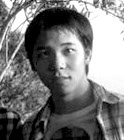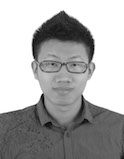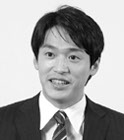People
Director
Faculty Collaborators

Dr. Jeffrey Boase is an Associate Professor in the Institute of Communication, Culture, Information and Technology and the Faculty of Information at the University of Toronto.
His research focuses on the relationship between communication technology and personal networks. He is particularly interested in how emerging technologies such as smartphones and social media platforms may enable or hinder the transfer of information and support within personal networks.
More information is available on his website and his Google Scholar profile.
Tetsuro Kobayashi is an associate professor at the National Institute of Informatics, Japan. He received his Ph. D. from the University of Tokyo for his study of social consequences of the Internet use in Japan. His research area covers social network theory, social capital theory, and computer-mediated communication. He has published his papers in journals such as Information, Communication & Society, AI & Society, and the Japanese Journal of Social Psychology.

Dr. Rhonda McEwen is an Assistant Professor at the University of Toronto Mississauga (UTM) where she conducts research on media communication technologies and navigates the dynamic scope of communication in everyday life through teaching at the University.
Dr. McEwen holds a graduate degree in telecommunications and has 15 years experience working for the digital communications sector. With these she carefully balances a wealth of technical experience with media communications theory. In the course of her research she studies communication technologies for people with neuro-diverse developments such as autism; examines youth media practices; and engages in mixed-methods fieldwork techniques including network analysis, surveys, focus groups, interviews, observations, and experiments.
For more details, visit her blog, "Wheel and come again: Socio-technical musings with my public" at http://rnmcewen.blogspot.com/.

Dr. James E. Katz is the Feld Professor of Emerging Media at Boston University’s College of Communication. In addition, he directs its Division of Emerging Media Studies. Dr. Katz joins BU from Rutgers University where he held the title of Board of Governors Professor of Communication, the highest honor the University can bestow on a member of its faculty.
Dr. Katz has devoted his career to analyzing the uses and social consequences of emerging communication technologies, especially the Internet and telephone. He explores how they affect social interaction and what their uses reveal about human nature and organizations and was among the first to demonstrate their pro-social uses. He also seeks to understand what the future holds in terms of society and communication technologies and works with others to explore ways in which society can best prepare itself to make optimal use of new developments.

Rich Ling is the Shaw Foundation Professor of Media Technology, Wee Kim Wee School of Communication and Information, Nanyang Technological University, Singapore. He has focused his work on the social consequences of mobile communication. He was a professor at the IT University of Copenhagen, where he has served in Department management and he works at Telenor near Oslo, Norway. Ling has been the Pohs visiting professor of communication studies (2005) at the University of Michigan in Ann Arbor where he has an adjunct position.
Dr. Ling received his Ph.D. in sociology from the University of Colorado, Boulder in his native US. He has worked at the Gruppen for Ressursstudier (The resource study group) and he has been a partner in a consulting firm, Ressurskonsult, which focused on studies of energy, technology and society. For the past thirteen years, he has worked at Telenor R&D and has been active in researching issues associated with new information communication technology and society with a particular focus on mobile telephony. Rich Ling has received recognition as an outstanding scholar from Rutgers University and Telenor and has received the Goffman Award from the Media Ecology Society. See more about Rich Ling at his own website.

Junji Zhi is a PhD candidate student at the Department of Computer Science, University of Toronto, Canada. Junji obtained a B.Sc degree in Software Engineering from Shenzhen University, China, and a M.Sc degree in Computer Science from the University of Calgary, Canada.
Jack Jamieson is a MA student in the Communications and Culture Program at Ryerson and York Universities. He researches relationships between technology, society, and culture, particularly how communication technologies are used differently in different cultural contexts and how these contexts shape the affordances of those technologies.
For the E-Rhythms Project, he is developing an application to convert smartphone usage data into audio. Through this exploratory analysis technique, he will identify rhythmic patterns in the mobile telecommunication habits of respondents.


Hirokazu Oda is a graduate student at Chiba Institute of Technology, Japan and an exchange student at Ryerson University, Canada.
He has worked in various design fields, including: Industrial, UX/UI, Graphic, Prototyping and "Design Engineering." He is interested in using design to connect people and knowledge from different fields and to promote creativity and active lifestyles.
http://connect-designworks.tumblr.com/
Yingduo Tang is a Masters student in the Faculty of Information at the University of Toronto. His concentration is in information system design, which involves business modeling, system requirement engineering, and information management. He is also interested in software development and has experience programming in C, Java, and Android SDK. In the E-Rhythms Project, Yingduo is developing an Android application that gathers and processes log data from project participants, and is used for surveys by project researchers.



